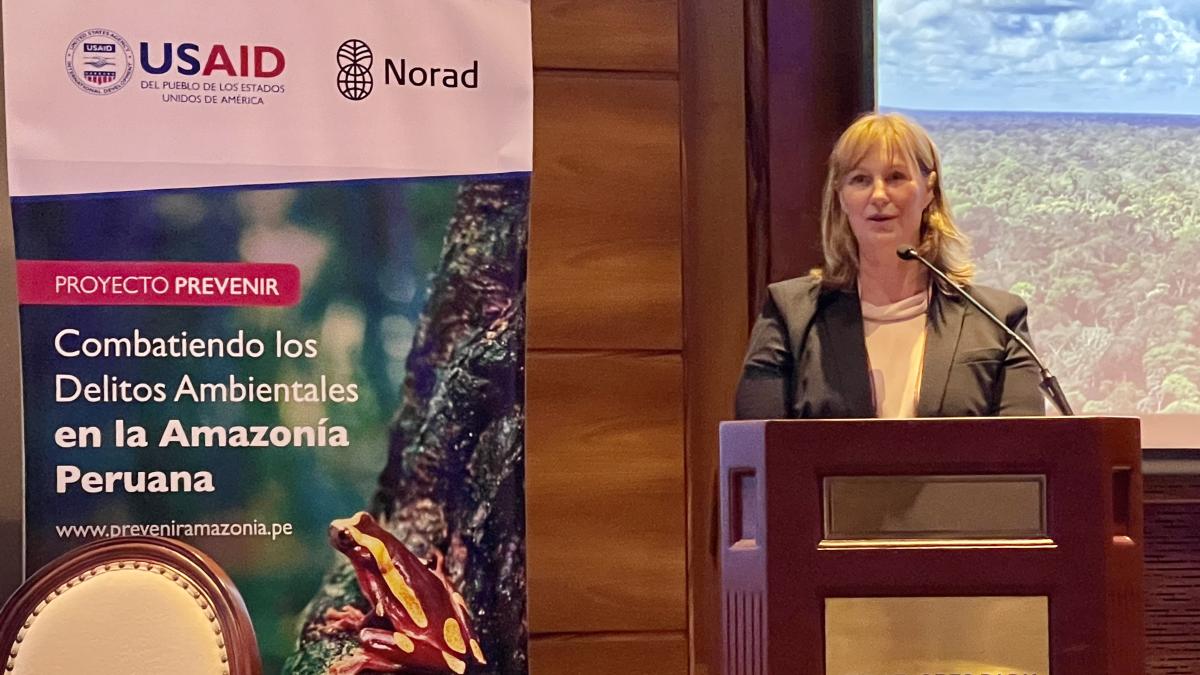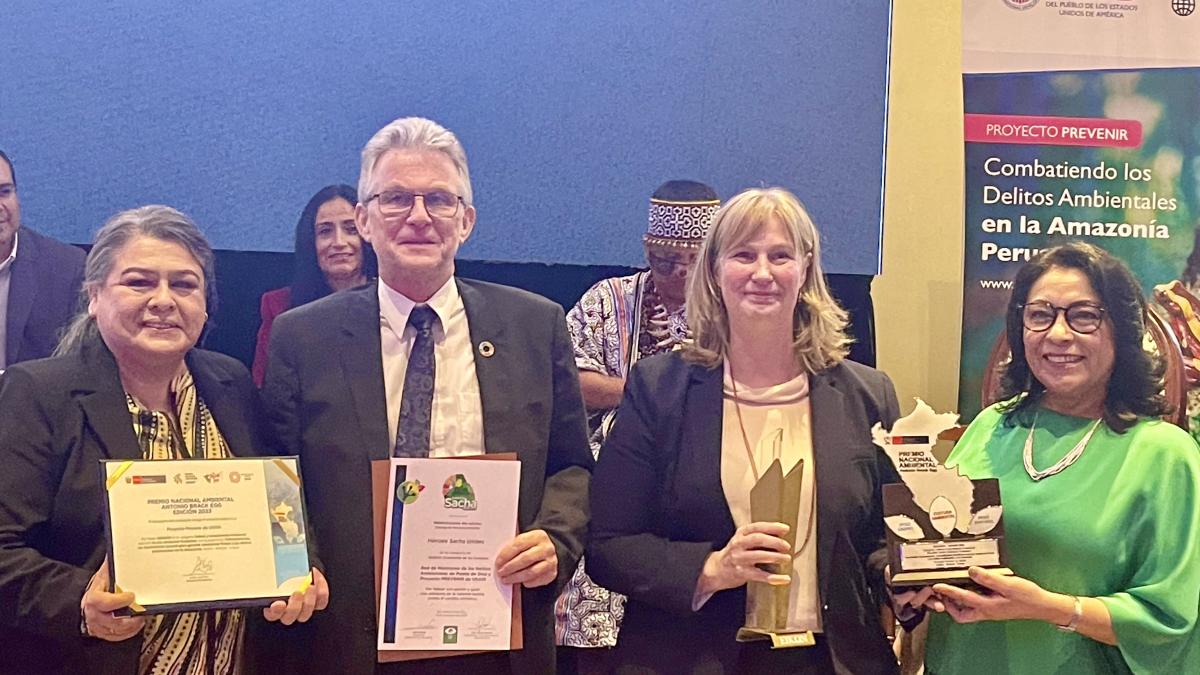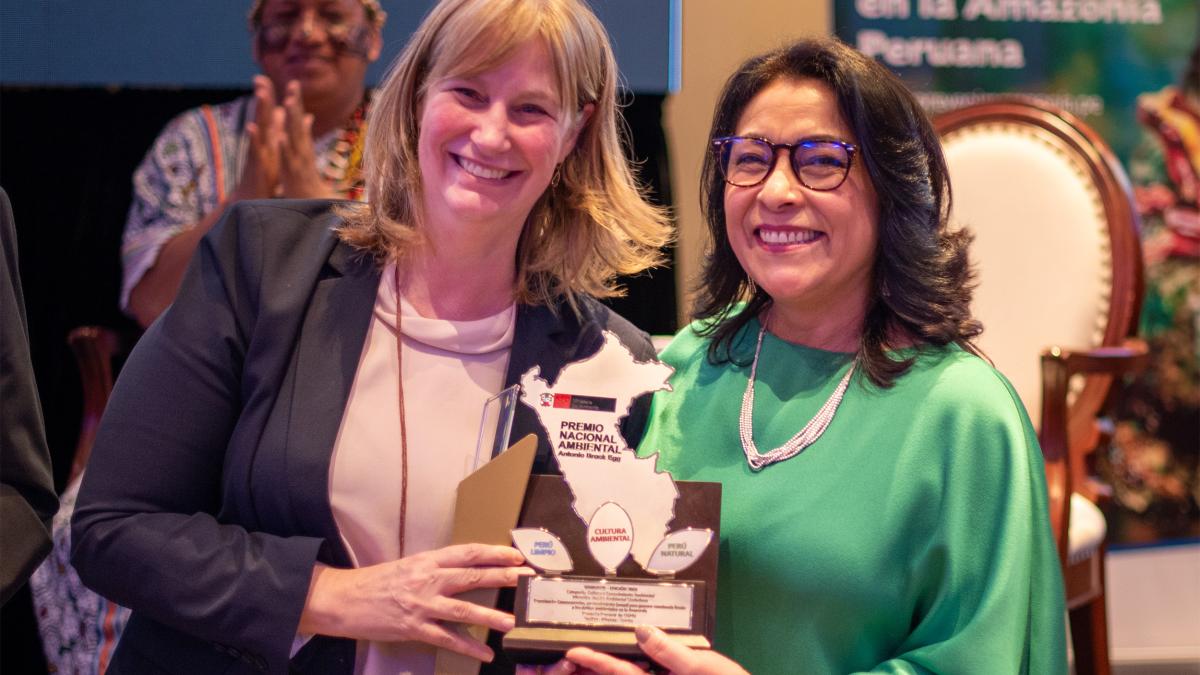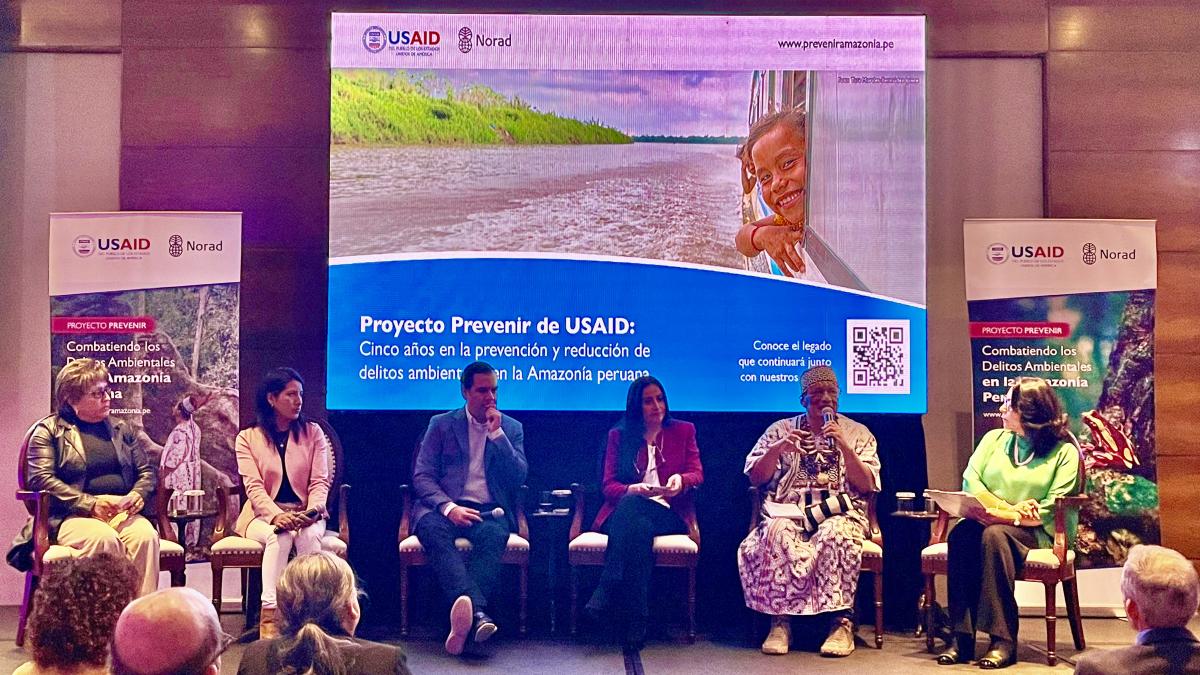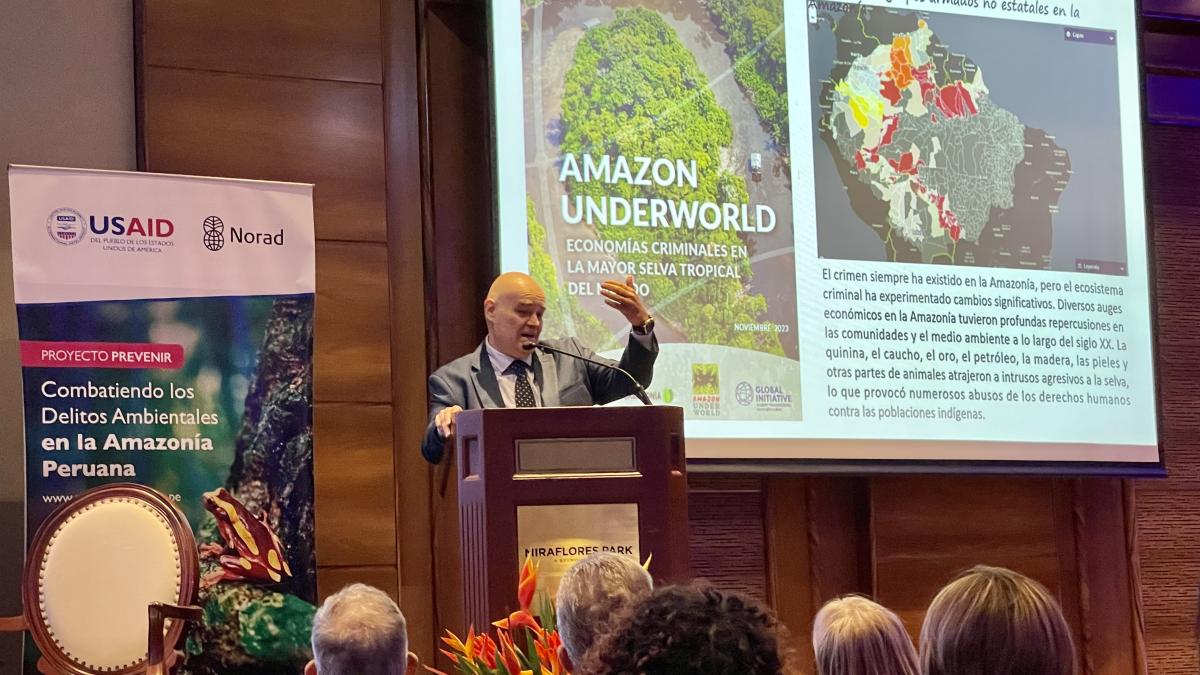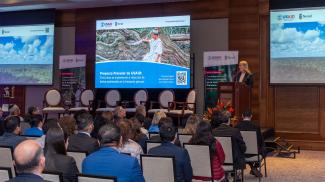
The USAID Prevenir project contributed to strengthening the national regulatory framework, promoting over 35 regulations to curb environmental crimes, among other notable results.
Authorities, private sector representatives, and indigenous leaders recognized the achievements made for the effective prevention of illegal logging, illegal mining, and wildlife trafficking.
Lima, June 13, 2024. Specialists, authorities, indigenous leaders, and private sector representatives gathered at the Belmond Hotel in Miraflores on Thursday, June 13, to share the advances made by the United States Agency for International Development (USAID) in the fight against environmental crimes. The event highlighted USAID's efforts through its Prevenir project, as well as the challenges in addressing illegal logging and mining, especially in Loreto, Ucayali, and Madre de Dios.
Although the project began in 2019, it managed to navigate the challenges of the COVID-19 pandemic and established strategic alliances that promoted commitments to prevent environmental crimes in the Peruvian Amazon. Some of its achievements include:
- Leveraging USD 2.2 million to promote sustainable value chains with civil society and indigenous organizations and the construction of business alliances.
- Promoting improved forest management models in over 200,000 hectares of monitored and sustainably managed forests, and 15 native communities conserving 18,568 hectares through a fine compensation scheme.
- Training over 5,500 justice operators and other professionals in environmental crime prevention with gender and intercultural approaches.
- Strengthening the national and regional regulatory framework, promoting over 35 regulations to address environmental crimes.
- Fostering investigative journalism and raising awareness of environmental crimes and their solutions, with more than 2,300 news pieces and reports published in local and national media.
- Providing technical support for the formation of three citizen environmental monitoring networks, linking indigenous organizations, local communities, and forest users in Loreto, Ucayali, and Madre de Dios.
- Contributing to the development of over 15 technological tools to integrate information and make forest management transparent between authorities and forest users, including the "Mi Bosque" app, with over 1,000 users reporting their forest management.
- Promoting good environmental and social practices for formal artisanal and small-scale mining (MAPE), and, together with the first network of responsible MAPE women in Madre de Dios, achieving more sustainable operations among over 500 miners, eliminating the use of mercury.
Amy Paro, USAID Mission Director in Peru, who inaugurated the event, emphasized that "Prevenir has implemented a holistic approach to combating environmental crimes in the Peruvian Amazon and improving the safety of environmental defenders, in collaboration with public entities, indigenous communities, civil society, and the private sector. We will continue working together to promote and achieve the sustainable use of resources, promote legality, and conserve the Peruvian Amazon."
The event featured a group of distinguished experts, including Gabriel Quijandría, former Minister of Environment; Einar Telnes, Climate Change and Forests Advisor at the Royal Norwegian Embassy; Jamer López, President of the Regional Organization AIDESEP Ucayali (ORAU); Lucetti Ullilen, Head of the Supervisory Agency for Forest Resources and Wildlife (OSINFOR); María Elena Gutiérrez, Executive Director of Amazon Conservation Association ACCA; Antonio Olórtegui, Legal Manager of LATAM Peru; and Julissa Barrios, representative of the Network of Women in Responsible MAPE in Madre de Dios, among others.
Finally, the event concluded with a photographic exhibition and the presentation of the publication "Stories of Conservation in the Peruvian Amazon," a recount of some of these experiences that is expected to contribute to the consolidation and replication of commitments for a healthy and sustainable Amazon that ensures the well-being of its inhabitants.

